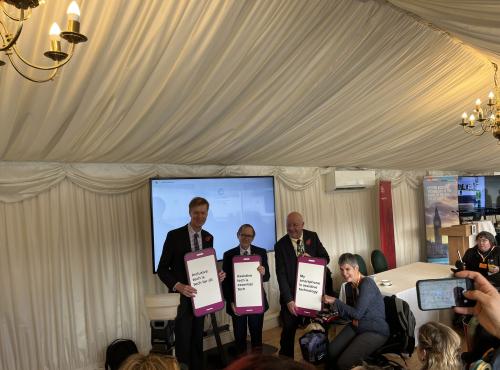Who are the new metro mayors and what do they want to achieve?
Last Thursday, 4th May, voters across the country turned out to the polls to elect new ‘metro mayors’ in six key areas. The new combined authority mayors, known as metro mayors, have been introduced as part of the Government’s devolution agenda, with the aim of allowing regional authorities to take on more functional control over their areas than previously allowed.
Metro mayors, each with a tailored devolution deal for their area, present the opportunity for regional funding to be appropriately channelled to address the most pressing issues within each combined authority. Metro mayors will have a variety powers over areas including housing, transport and skills. They are also responsible for establishing a strategy to grow their region’s economy.
A number of key themes emerged from the campaigns and manifestos of the mayoral candidates. Notably, there was a cross-party overlap from both Labour and Conservative candidates on issues such as housing, transport and skills. Primarily, all candidates asserted their readiness to prioritise the health, wellbeing and prosperity of their region’s residents foremost.
Education and Skills
With each metro mayor receiving an adult skills budget – and the majority also empowered with apprenticeships grants for employers and control over the post-16 further education system – education and skills policy is sure to be central to all six regions.
The Skills Commission’s recent Spotlight report focussed on lifelong learning for older workers. Read it here.
Its previous Spotlight report covered the prospects of young people with below average academic attainment. Read that here.
Housing – planning & sustainability
Housing also proved a substantial part of mayoral campaigns, with extensive powers being devolved in this area to the winners. These include hundreds of millions of pounds worth of investment into strategic housing planning. Issues of sustainability were mentioned within housing strategies, but wider sustainability issues such green energy were disappointingly absent amongst victors’ pledges.
Carbon Connect has published a report on the future of electricity, including a part on the future of renewables as an energy source. Read it here.
On housing, the Design Commission recently published People and Places, a report on the impact of the built environment on the residents within it. Read that here.
The Westminster Sustainable Business Forum published its Warmer and Greener report on housing infrastructure in terms of energy efficiency and sustainability last year. Read here.
So – who are the new metro mayors? And what do they want to achieve?
Past reports by Policy Connect’s team have explored devolution in relation to various policy areas. People and Places by the Design Commission, for example, examines the prospect of further devolved powers for local authorities to improve their built environment. The Skills Commission’s Going Places report similarly states the potential for devolution to improve skills provision regionally, with its co-chairs deeming devolution a “striking opportunity to boost regional employers, SMEs and providers’ links, and fill skills gaps specific to regions.”
The introduction of metro mayors is an exercise in decentralisation which offers promise. But whilst the prospect of increased devolution to better address regional issues is encouraging, it is essential for devolved authorities to be adequately empowered and funded. Whether the funding and regional powers possessed by metro mayors will sufficiently fulfil this requirement remains to be seen.



